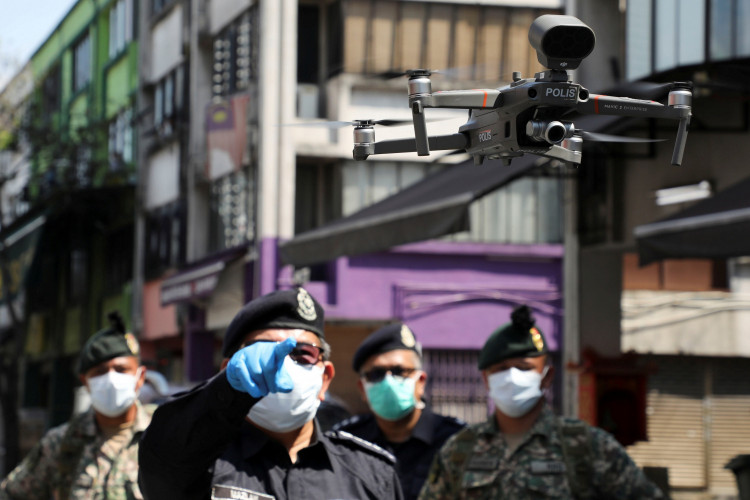The coronavirus crisis has made it abundantly clear that there's a need for rapid identification of individuals infected with the disease so that they can be isolated and prevent further infection. Testing tools are unfortunately limited and slow but drones have the potential to be a game-changer in these trying times.
Drones have been an integral part of a technology that has contributed to the automation of certain tasks, such as disinfection and deliveries. Now a Canadian company aims to make drones that will act as a systems integrator with a healthcare data services company and researchers in Australia.
The company, Draganfly, has designed a "pandemic drone" that would fly over people in order to identify their temperature and respiratory conditions, which in turn will curb the spread of the virus. The drones are fitted with computer vision systems and sensors that can detect heart rates and breathing, and can also spot if someone is coughing, sneezing, or defying social distancing guidelines.
Test flights have already started in Westport, Connecticut, one of the coronavirus hot zones in the United States. Draganfly said that Westport will use the tech to protect at-risk groups, such as the elderly and common areas where crowds gather.
"It is anticipated that this will continue to be in effect through the summer months of July and August as we anticipate the need to continue to work to reinforce social distancing measures to limit and control the spread of the COVID-19 virus," Westport Police Lieutenant Anthony Prezioso told Connecticut news outlet Patch.
While these pandemic drones can easily identify sick individuals, its main goal is to collect real-time statistical data about the possible spread of the disease. The drones are a part of a system that will feed video and images into software developed by AI and healthcare company Vital Intelligence. The company will also use CCTV cameras.
Draganfly has clarified that its pandemic drones will not be used for surveillance, rather its efforts are focused on the containment of the coronavirus. The company claims that while its software uses biometric readings, it does not perform facial recognition and that all the data it gathers is anonymized. In a YouTube video, Draganfly CEO Cameron Chell said that its system neither identifies people nor collects individual data.
The pandemic drone project has an annual budget of $1.5 million, with an initial focus on hot zones. Within those zones, the drones will be deployed in critical areas, like hospitals and clinics.






